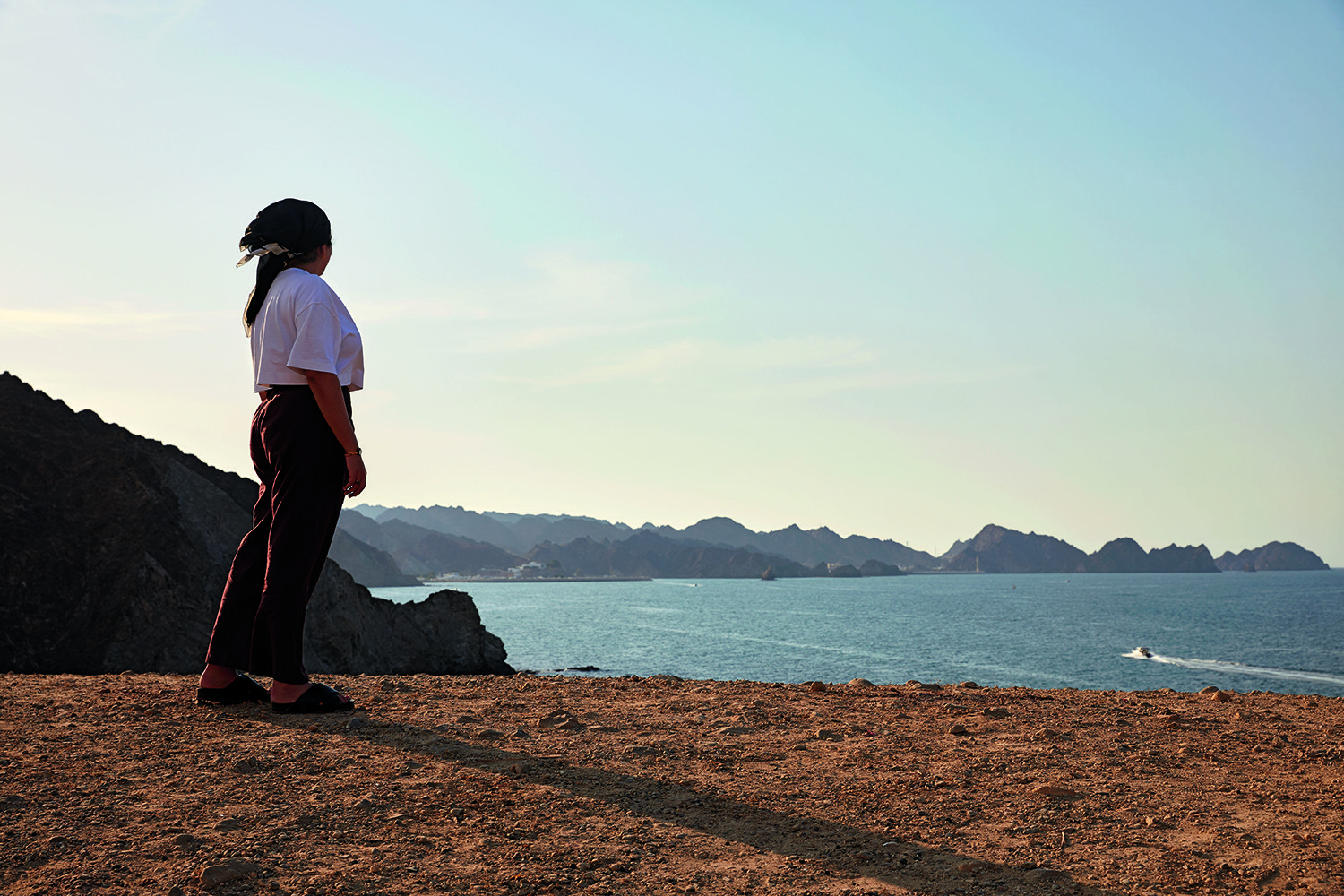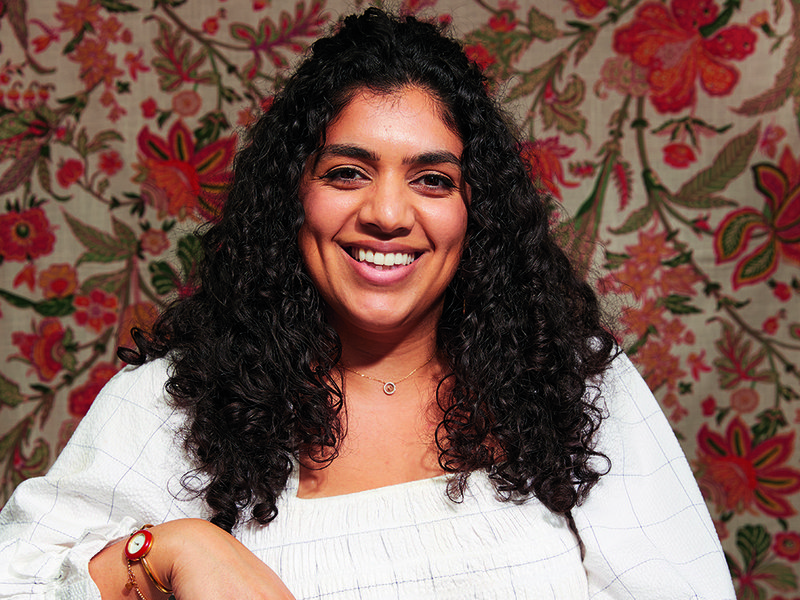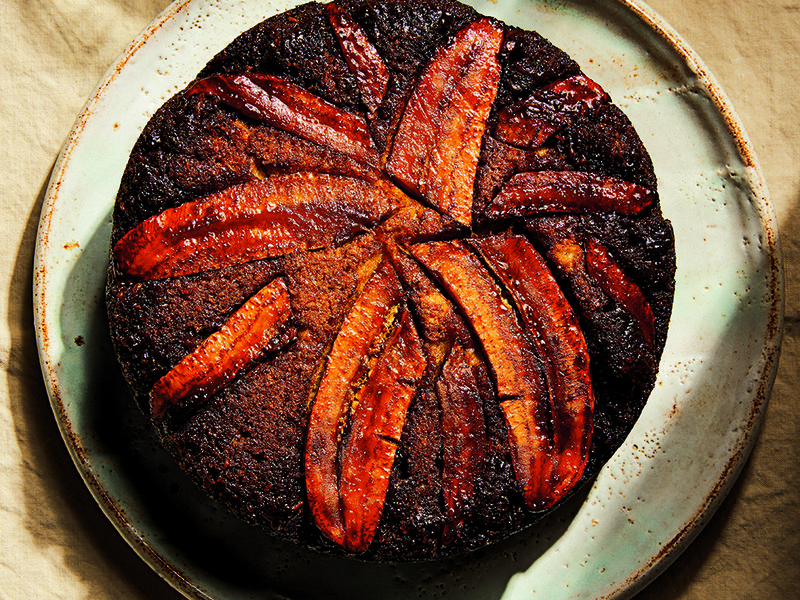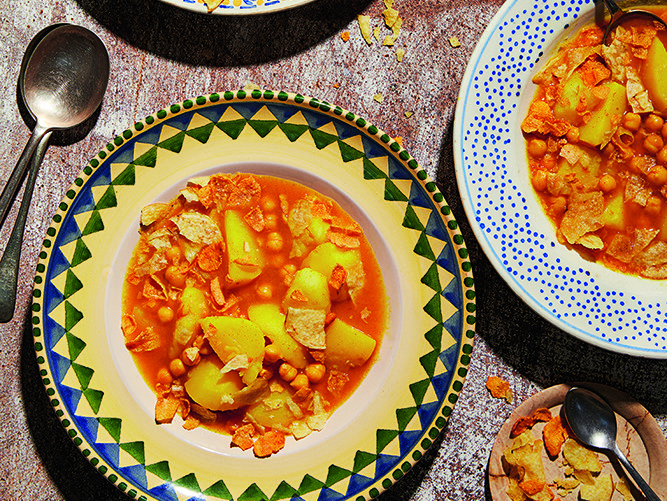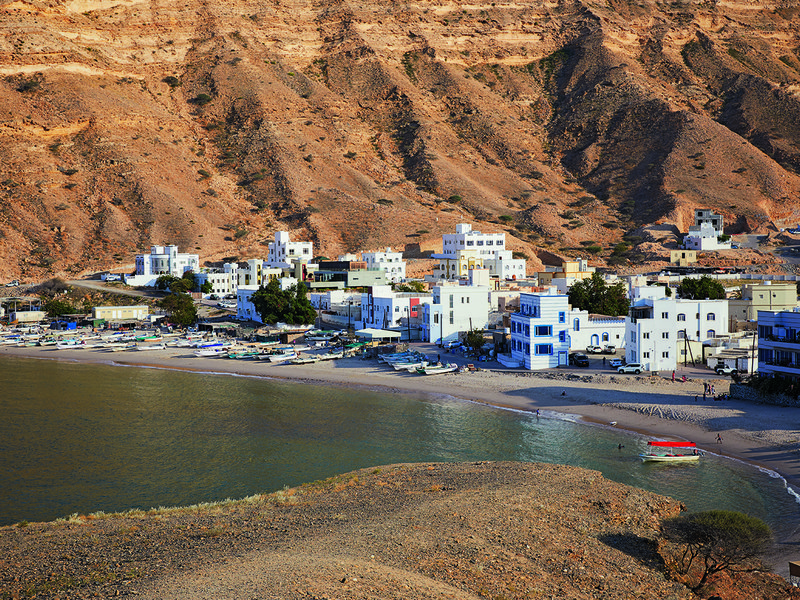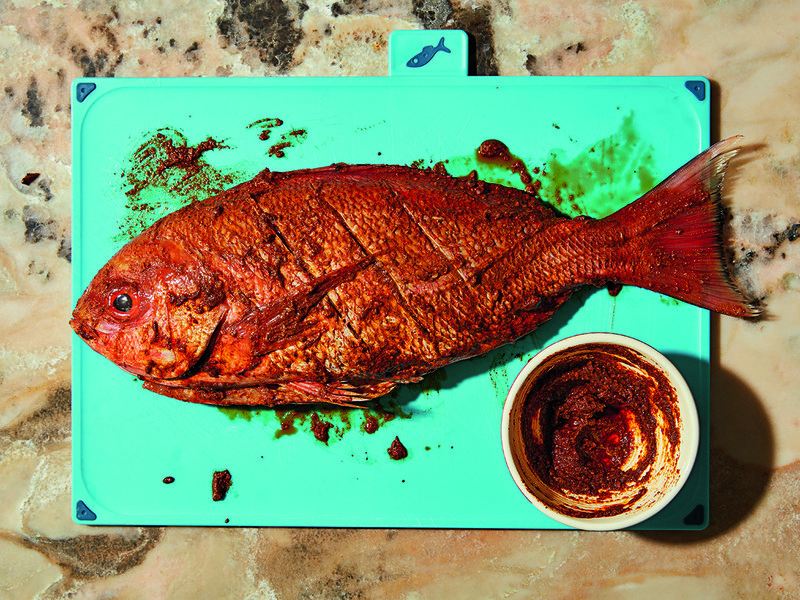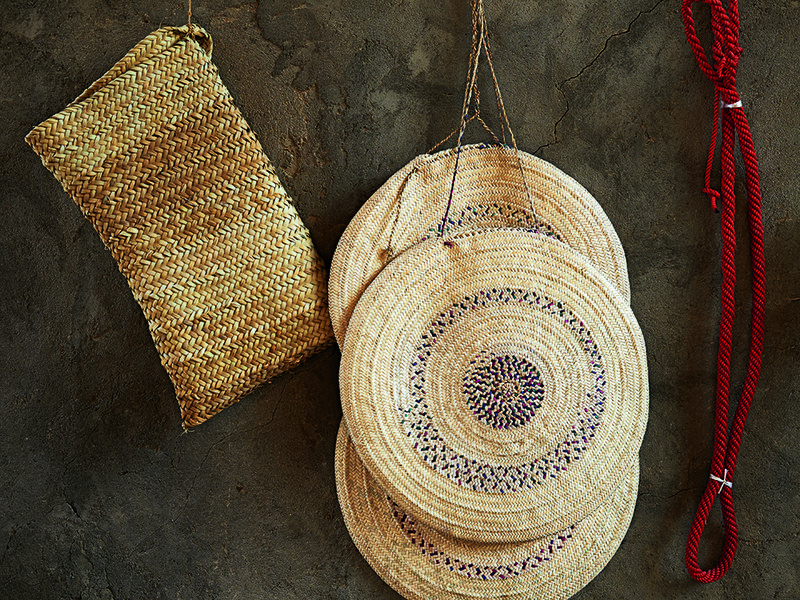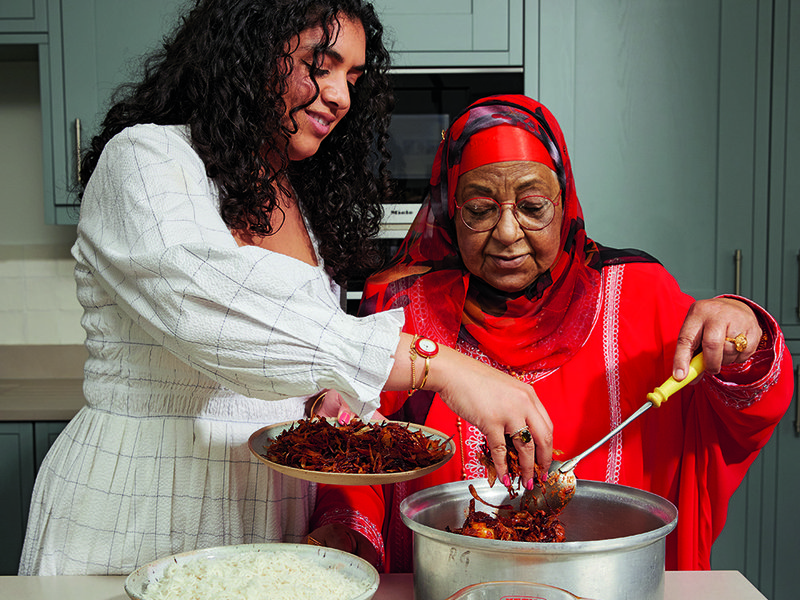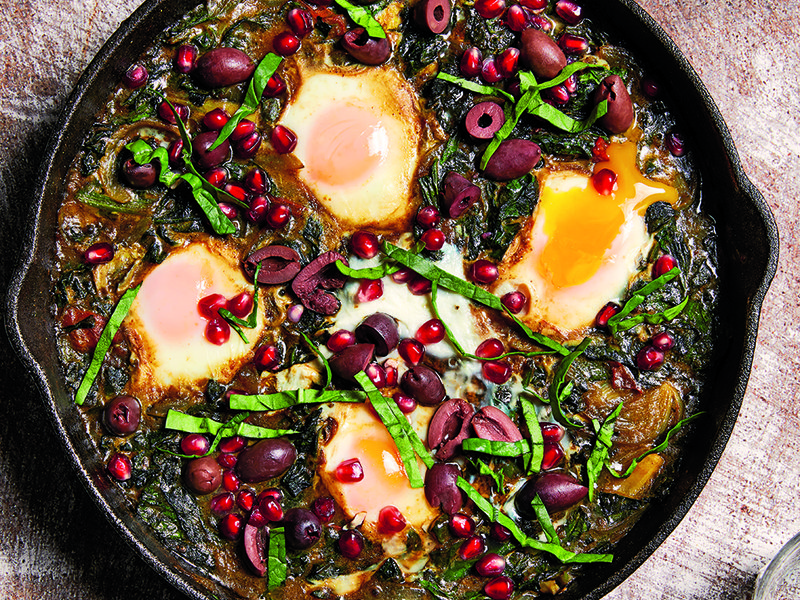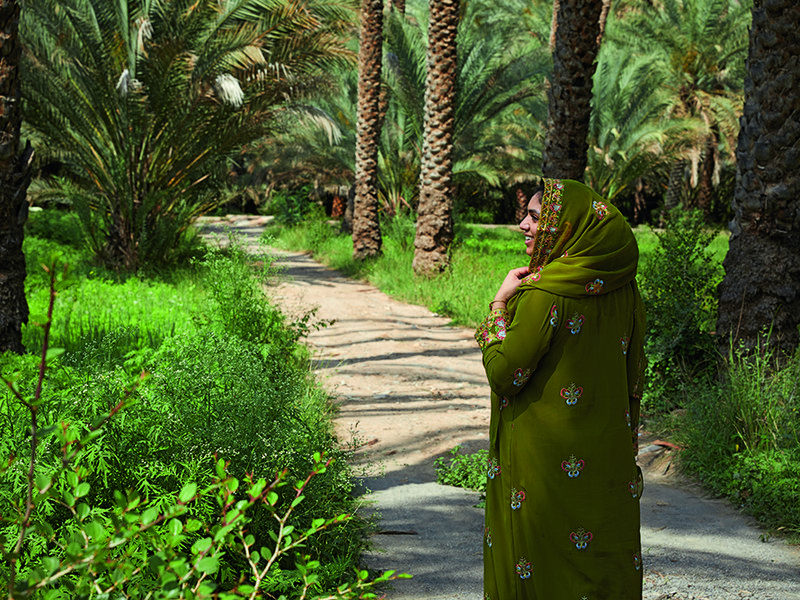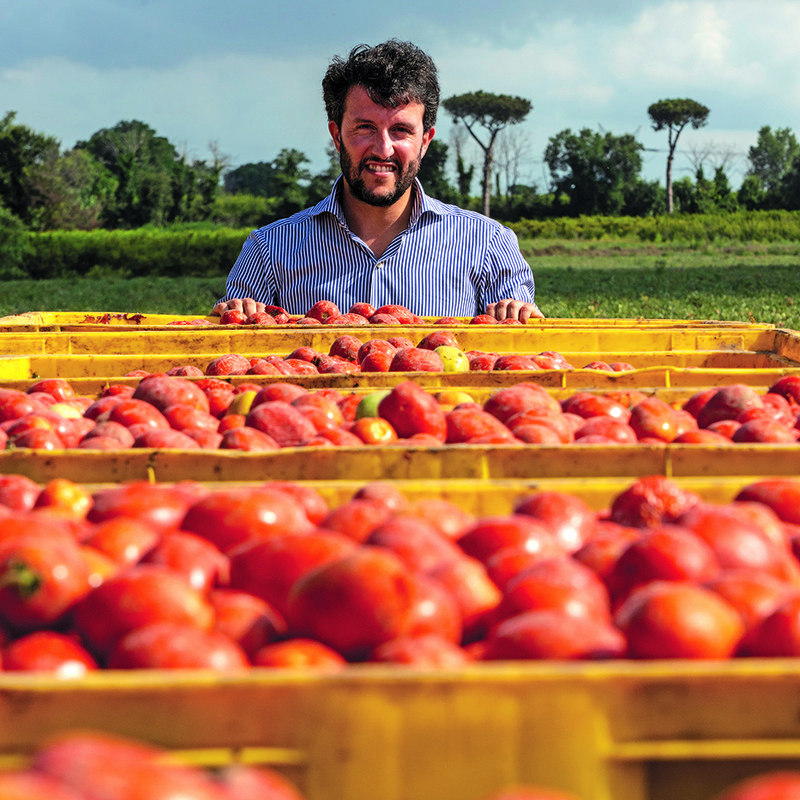You have a rich heritage and diverse background – please tell us more about this.
My mum’s immediate side of the family were all born in Zanzibar, but they also have Iranian and Omani heritage. My dad was born and bred in Muscat, but he has Bahraini and Iraqi ancestry, too. I was born in the UK. My grandparents and their community left Zanzibar in 1964 when it ceased to be part of Oman, and became part of Tanzania. They travelled to Portsmouth with the Sultan of Zanzibar and settled there. My grandmother Bibi says it reminded them of island life. I’m not sure why... There are no palm trees, and no white sandy beaches! So that’s how I ended up growing up in Britain, but I also travelled back and forth to Oman to see my father’s family and the rest of my mother’s extended family.
What inspired you to write a cookbook? And when did this start?
The whole process has been wild. In 2020, I was listening to another cookbook author talk about how to get published. She made it seem so easy; dispelling ideas that one needs to be famous. I thought, ‘I can do this!’ I started by writing a proposal, but then I got stuck in Oman for six months because of Covid. I decided to use the time to travel around Oman as much possible and finish my proposal. So, I explored as much as I could each day (there was a curfew) and then I’d write at night. In 2021, I found a literary agent, who then spent a further nine months working on my proposal. In August 2022, I got a deal, and since then it has been crazy.
You have more than 90 recipes in the book. How did you select these? And did you have to test every single one from scratch?
While doing my proposal, I had already begun testing recipes. And because I’ve also posted a lot of recipes on Instagram – I had a solid base of around 40 recipes. For the rest, I had made most of them once or twice but the measurements were all over the show. In January 2023, I decided I would test six recipes a day for 30 days and that was the only way to get through it. I moved into my grandmother’s one-bedroom flat, along with my mother, and we cooked constantly in her tiny kitchen. We did not like each other by the end of it!
How did you decide on Bahari as a title and what does it mean?
Bahari is the Swahili word for ‘ocean’ and in Arabic it is ‘bahar’. So, I thought the title sums everything up well. It speaks to the history of Oman and Zanzibar, the importance of the ocean, as well as to my background.
Was it difficult choosing a cover image?
It was an insane process. I was adamant not to have food or faces on the cover; I love beautiful illustrations. After a lot of back and forth, and toward the end of putting the book together, I took a trip to Goa. And I know this going to sound like something out of a cliché movie, but I was standing on the beach, with my feet in the orange-coloured sand, looking at the Indian ocean when I thought, ‘this is it!’ I took a picture and sent it to my publisher. The Portuguese sailed from Goa to Oman and settled in Muscat, but they also sailed that same sea to Zanzibar. Standing at the source of the ocean that has played such an important role in migration was apt – and my photo had to be the cover of the book.
How did you divide the book to ensure you captured everything?
When we first did the chapters, I went for normal sections like Meat, Fish. Vegetables… As I was writing the essays that are in the book, I thought none of this makes sense and boring categories don’t do the dishes justice. Bahari is about how the ocean allows us to travel and migrate – and I needed to find a way to create a sense of place for regions, or countries that were part of what I was trying to convey. This resulted in the following final chapters: Muscat, Zanzibar, the Coast, the Interior and Portsmouth.
Muscat gets its own section as it held such importance at the time, and because there were so many dishes that I discovered which are unique to that city. Zanzibar is at the core of everything that I have been taught by my grandmother and her family. The coast reflects migration: India to Oman, and Oman to Zanzibar along the Swahili coast. The interior talks about my journey into Oman’s mountain ranges during Covid. Portsmouth includes recipes I enjoyed during childhood, as well as more experimental dishes from my present.
While travelling around Oman, did you come across unknown dishes? Or was there anything that really stood out for you?
Definitely, and the discoveries were astonishing. Take shuwa, for example, which is considered to be the national dish of Oman. This is something that is meant to be eaten over Eid and it’s only common in certain parts of the country. In Salalah, they don’t eat it at all, for example. They have their own specialities there – and it’s like that across the country, as originally Oman was broken up into tribes which came from different areas.
I learnt a lot from my time cooking with a woman called auntie Fatima, who was actually born in a cave in Salalah in the mountains. She taught me about majin – a jerky-like dried beef which is rehydrated, cooked in its own fat then used in a sweet curry that’s eaten with rice and a lot of ghee. The beef itself is quite chewy, but it’s not an offensive chewiness. This is Salalah’s dish for Eid – and I love that they have their own thing.
When you were testing these more unknown dishes back in the UK – did you face challenges?
Yes, but I was determined to do them justice. Some of them were so demanding. An example is a milky curry that must be made with fresh milk from a cow or camel – so it is thick and delicious. That is pretty difficult to find. So, it took ages playing with different milks and creams to reach the right consistency, texture and flavours. There were a few instances where I thought I wouldn’t be able to include certain recipes but then I powered through.
Have you found that one cuisine has resonated more with you since doing the cookbook?
I think I’ve found a balance. Growing up, I was much closer to Zanzibari cuisine because that’s all we ate at home with my grandmother. I learnt more about Omani food once my mum moved there, and after I started travelling there more often, but I always found different dishes being made and couldn’t understand the diversity. I feel like I have now have a real closeness to Omani food, one that is stronger than Omanis themselves because of what I have discovered. Everyone’s very divided because it’s such a big place and it has so much history. I feel like I’m the only person who knows all the secret little details about its cuisine.
Any advice for aspiring cookbook authors?
Just don’t do it! Actually, do it, but know that it’s hard work and make sure you are truly invested in it. The book will become your life. Do your research, find a great agent and lean on your publishers for advice. They know what they’re doing. Most importantly, trust yourself.
Get your copy:
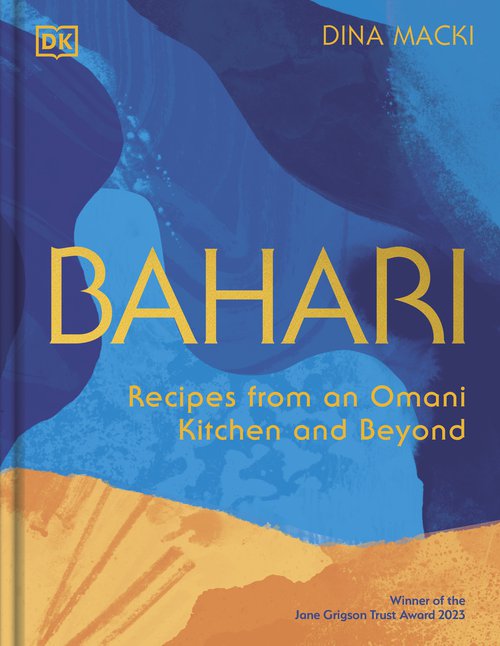
Buy Bahari – Recipes from an Omani Kitchen and Beyond by Dina Macki here.
Dina’s recipes from this article and more: Spinneys.com
